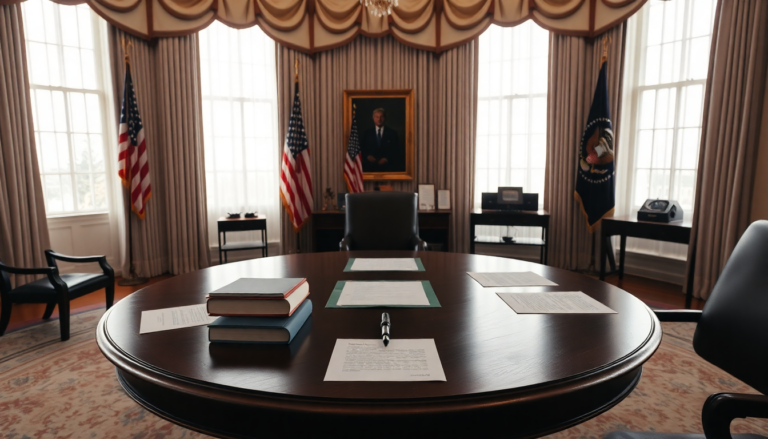Argomenti trattati
The intersection of reality TV and politics
In an era where the lines between entertainment and politics often blur, former President Donald Trump stands as a distinct figure. His presidency was marked by a flair for drama and a unique approach that felt reminiscent of a reality television show. From the moment he stepped into office, Trump employed tactics that captivated audiences and engaged the public in ways few politicians had dared to do before.
During a notable encounter in the Oval Office with Ukrainian President Volodymyr Zelenskyy, Trump showcased this blend of political maneuvering and theatricality. The televised meeting became a spectacle when Trump and Vice President JD Vance pressed Zelenskyy to express gratitude for U.S. military assistance. With cameras rolling, the scene unfolded like a scripted drama, with Trump casually noting, “This is going to be great television.” This moment encapsulated the essence of Trump’s presidency—where every decision and discussion seemed to be staged for maximum viewer engagement.
The art of political theatrics
Trump’s background as a reality TV star significantly influenced his presidency. Known for his role on the show ‘The Apprentice,’ he brought the showmanship he perfected in Hollywood to the White House. This shift in approach meant that political events often resembled carefully choreographed productions. For instance, upon returning to office in January, Trump signed executive orders in a packed sports arena, showcasing documents to an enthusiastic crowd while the media captured every moment.
His administration was characterized by events that felt orchestrated for television. Trump hosted a Tesla showcase on the White House lawn and rolled out new tariffs during a theatrical Rose Garden event, complete with visual aids and crowd engagement. These moments were not merely about policy; they were performances designed to captivate and entertain. Trump’s knack for branding and spectacle turned traditional political discourse into something that felt more like a reality show than governance.
The audience’s role in the spectacle
Trump understood the importance of audience engagement, a staple of reality television. His presidency was built on the notion of captivating viewers, whether they were supporters or detractors. Many of his public appearances were aimed at reinforcing his brand, often using catchphrases that became part of the cultural lexicon, such as “fake news” and “Make America Great Again.” These phrases not only defined his political messaging but also served to create a narrative that was easily digestible for the public.
Moreover, Trump’s interactions with the media were strategic, often leveraging cable news to amplify his message. His administration saw a significant number of former media personalities take on key roles, further blurring the lines between news and entertainment. The frequent press briefings, social media engagements, and staged events were all part of a calculated effort to maintain his narrative and keep the public engaged, much like a reality show where the audience eagerly anticipates the next episode.
Branding and narrative control
Throughout his presidency, Trump maintained a strong focus on branding—both personally and politically. His administration was marked by a keen understanding of how to build a compelling narrative that resonated with his base. By portraying himself as a disruptor and change agent, Trump positioned his presidency as a dramatic saga unfolding in real-time. This narrative control was not just about policy but about shaping perceptions and emotions.
Critics argue that this approach detracted from serious governance, suggesting that Trump often prioritized spectacle over substance. However, supporters appreciated his unorthodox methods, viewing them as a refreshing departure from traditional politics. The effectiveness of this strategy can be seen in the way Trump was able to rally his base, using events and messaging that felt personal and relatable, akin to the emotional arcs found in reality television.
The legacy of a showman
As Trump continues to navigate his post-presidency landscape, the impact of his reality TV-inspired approach will remain a topic of discussion. His unique style transformed political engagement and set a precedent for future leaders on how to harness media and public relations effectively. Whether one views his presidency as a successful spectacle or a chaotic distraction, it’s undeniable that Trump has left an indelible mark on American politics.
In a world where politics often feels disconnected from everyday life, Trump’s reality-based presidency resonated with many who craved a more personal connection to their leaders. As we reflect on this chapter of American history, the interplay between entertainment and politics continues to evolve, raising important questions about the future of governance in a media-saturated environment.

